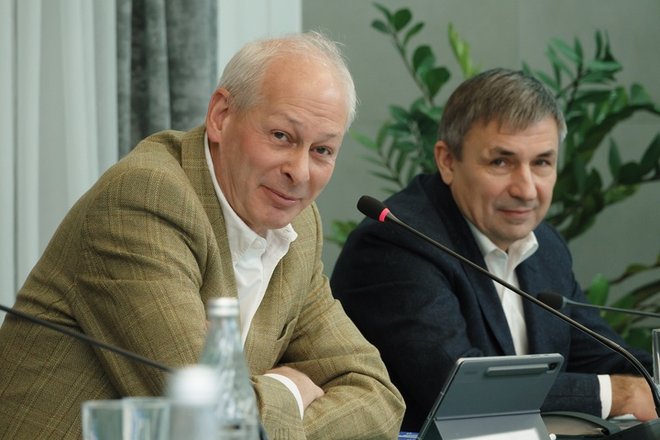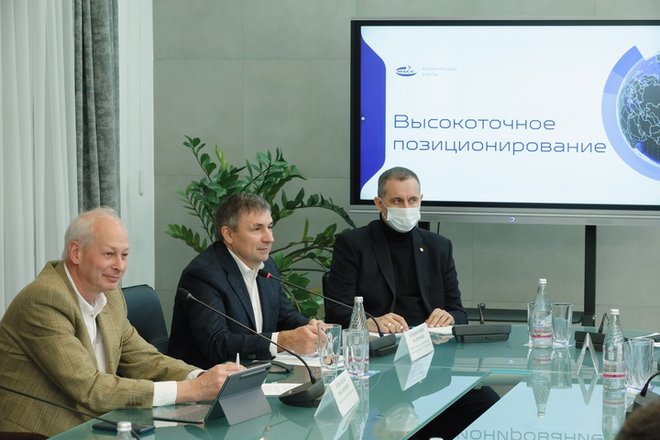Connectivity on the move: RSCC representatives at DSTU-organized round table spoke about use of satellite communications in transport and agricultural sectors
The event was dedicated to the use of space technologies in the agro-industrial and transport sectors. It brought together representatives of the Rostov regional government, DSTU, Ostankino Technical Center, as well as companies manufacturing farm machinery.
According to Alexey Volin, the task of providing users with communications and Internet access at their places of permanent residence has been almost solved. Here, no more than one or two per cent of the residents need satellite-supported communications, the rest being provided with fiber optic and mobile Internet.
Today, however, people are constantly on the move: they travel by airplanes and ships, work from completely different parts of Russia and the world, and they want to be online anytime, anywhere. In such a case, satellite communications are indispensable.
Therefore, satellite mobility solutions can become the principal driver, boosting the growth of the entire industry. According to analysts, demand for continuous connectivity will double the volume of in-flight connectivity market by 2028. The maritime VSAT market will also expand. The volume of maritime communication services is expected to increase to 5.1 billion dollars in 2025.
“RSCC already provides satellite communications and the Internet for nearly 400 ships, but it is only the beginning. According to the latest forecasts, in several years up to 1.200 ships will be passing through the Northern Sea Route annually. And they will need our services.
RSCC is the only Russian operator with expertise in providing services for unmanned navigation. The experiment is still ongoing, but there is a high probability that in four to five years, up to 100 ships will be involved. It is a serious volume of services that requires a lot of traffic,” said Alexey Volin. “We shouldn't forget about inland navigation. As of 2021, there were 11.000 river cargo ships and 1.500 passenger ships in service in Russia. However, river waterways, totaling almost 80.000 km, have no cellular access. And only satellite communications can solve the problem." The Express-RV HEO satellites project had been developed specifically for needs of the river fleet, the Arctic and the Northern Sea Route, said Alexey Volin.
He also announced the start of experiments involving drones, which would deliver cargo to remote areas of the country. At the moment, the Russian Post is actively involved in the tests. Currently, this segment is also assessed as very promising.
Concurrently satellite communications will be in demand for the Internet of Things and data reception / transmission. “These areas, in which communications are no longer required by people, but by inanimate objects, have increased the number of our consumers. We are currently experimenting with data transmission on the movement of cargo containers using satellite communications, which will allow, for example, online monitoring of so-called Northern Deliveries, i.e. deliveries of vital goods to remote territories before winter season. In so doing, we will also be able to assess the efficiency of using containers,” added Alexey Volin.
For his part, Evgeny Buydinov spoke about precise point positioning and its possibility to meet the requirements of the agriculture sector. According to forecasts, in five years, the agro-industrial complex need of such a positioning is estimated at more than 12.000 units of equipment, and at 1.600 units for UAV.
Summarizing the discussion, Evgeny Buidinov said: “RSCC is ready to use together with DSTU and manufacturers of farming equipment the university's experimental area for testing new Russian solutions”.

